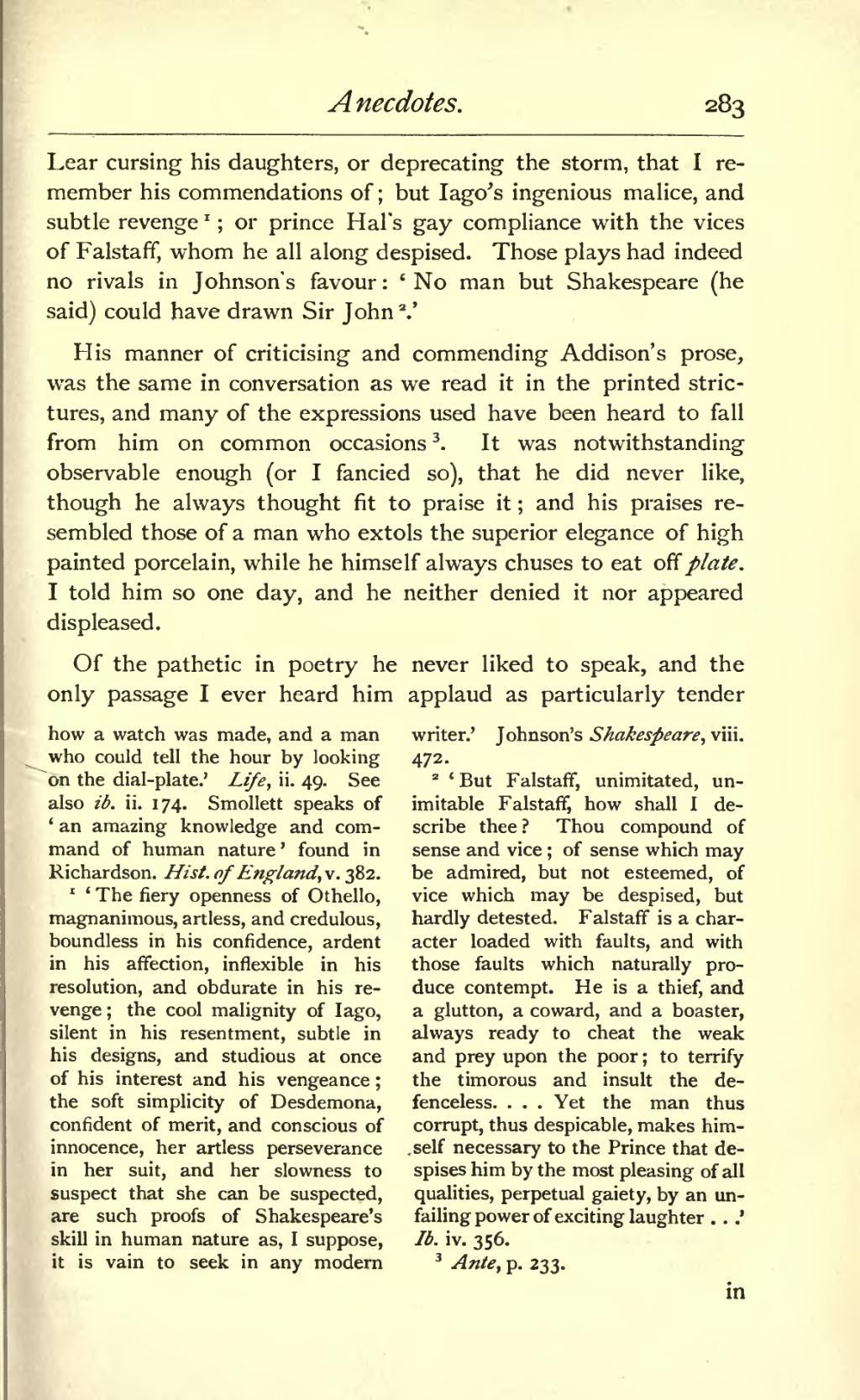Anecdotes.
��Lear cursing his daughters, or deprecating the storm, that I re member his commendations of; but lago's ingenious malice, and subtle revenge I ; or prince Hal's gay compliance with the vices of Falstaff, whom he all along despised. Those plays had indeed no rivals in Johnson's favour : ' No man but Shakespeare (he said) could have drawn Sir John V
His manner of criticising and commending Addison's prose, was the same in conversation as we read it in the printed stric tures, and many of the expressions used have been heard to fall from him on common occasions 3 . It was notwithstanding observable enough (or I fancied so), that he did never like, though he always thought fit to praise it ; and his praises re sembled those of a man who extols the superior elegance of high painted porcelain, while he himself always chuses to eat off plate. I told him so one day, and he neither denied it nor appeared displeased.
Of the pathetic in poetry he never liked to speak, and the only passage I ever heard him applaud as particularly tender
��how a watch was made, and a man who could tell the hour by looking on the dial-plate.' Life, ii. 49. See also ib. ii. 174. Smollett speaks of ' an amazing knowledge and com mand of human nature ' found in Richardson. Hist, of England, v. 382. 1 ' The fiery openness of Othello, magnanimous, artless, and credulous, boundless in his confidence, ardent in his affection, inflexible in his resolution, and obdurate in his re venge ; the cool malignity of lago, silent in his resentment, subtle in his designs, and studious at once of his interest and his vengeance ; the soft simplicity of Desdemona, confident of merit, and conscious of innocence, her artless perseverance in her suit, and her slowness to suspect that she can be suspected, are such proofs of Shakespeare's skill in human nature as, I suppose, it is vain to seek in any modern
��writer.' Johnson's Shakespeare, viii. 472.
2 'But Falstaff, unimitated, un- imitable Falstaff, how shall I de scribe thee ? Thou compound of sense and vice ; of sense which may be admired, but not esteemed, of vice which may be despised, but hardly detested. Falstaff is a char acter loaded with faults, and with those faults which naturally pro duce contempt. He is a thief, and a glutton, a coward, and a boaster, always ready to cheat the weak and prey upon the poor ; to terrify the timorous and insult the de fenceless. . . . Yet the man thus corrupt, thus despicable, makes him-
.self necessary to the Prince that de spises him by the most pleasing of all qualities, perpetual gaiety, by an un failing power of exciting laughter . . .' Ib. iv. 356.
3 Ante, p. 233.
in
�� �
